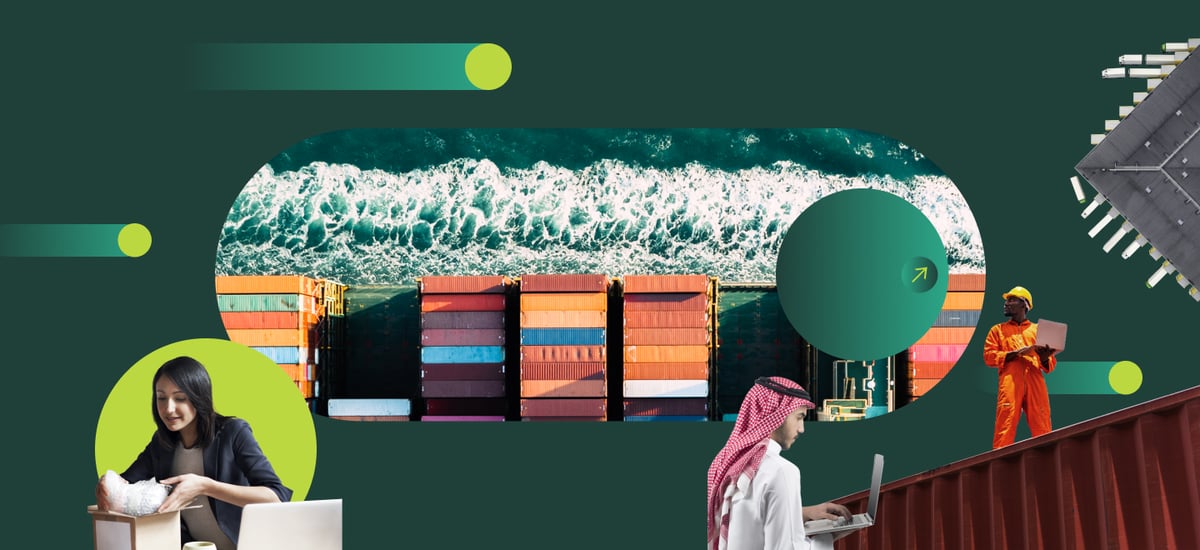
The Supply Chain Revolution Driving the Future of Sustainability Investments
Identifying and deploying new technology in Saudi Arabia will reshape supply chains and provide ways to hit ESG targets.
Investment flowing into Saudi Arabia is expanding the kingdom’s supply chain and logistics sector, with innovation and sustainability key priorities for capital allocation.
More than half of the foreign direct investment (FDI) being considered for Saudi Arabia – 54% – will be allocated for the development of local supply chains and logistics, compared to 42% globally, according to Bloomberg Media Studio’s 2022 Global FDI Study.
“This is a critical area for investment, and it’s also one of the most important to spearhead sustainable innovation. There is a huge opportunity to deploy solutions at scale that will revolutionize the supply chain and create another avenue for investing with a purpose.”
— Dr. Manar Al Moneef, Chief Investment Officer at NEOM
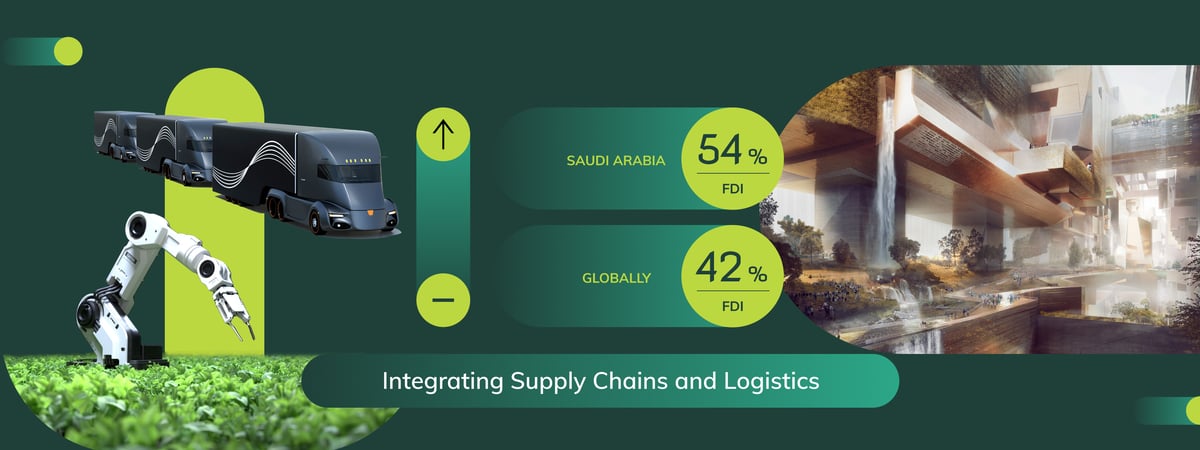
One such opportunity is with THE LINE, the intersection of innovation, investment and sustainability. The linear city will redefine urban living.
“Putting humans at the center of the design process – where within five minutes’ walk, most needs can be met – means we have to consider many variables simultaneously within our design and development process,” says Giles Pendleton, Executive Director of THE LINE. “Layering city functions vertically also means that, as part of this process, we consider supply chain and logistics integration, which isn’t just about delivery, but also the removal of waste.”
The city’s design will be completely digitalized, and construction will be aided by advanced manufacturing processes. It will require flexible logistics with the ability to scale up and down as needs require, to create a robust and efficient process. “As we focus on preserving nature and maintaining our sustainability ethos, we have to consider ways to minimize logistics traffic,” says Al Moneef.
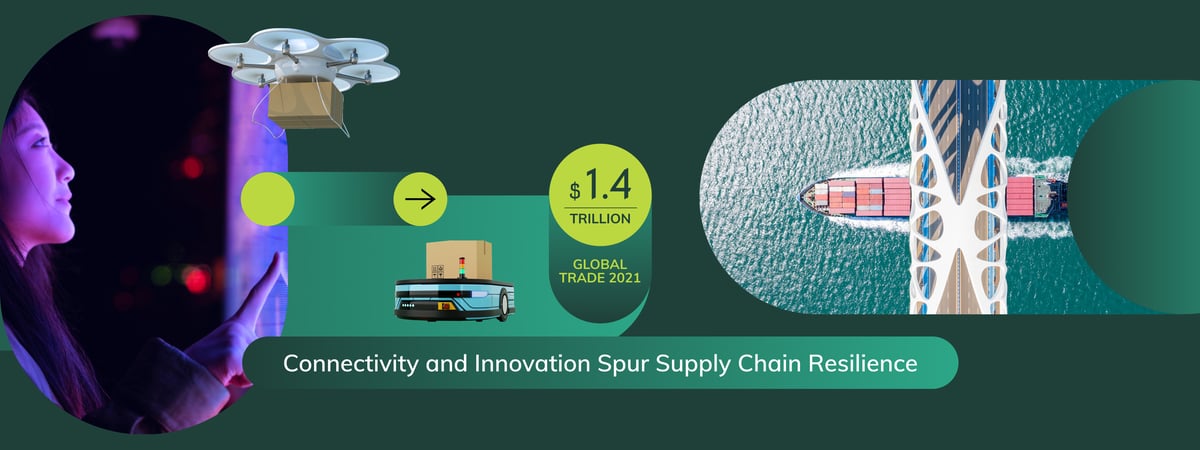
The global supply chain industry has tremendously evolved since the first Industrial Revolution, with Covid-19 greatly accelerating the sector’s digital transformation. Creating a holistic approach to the supply chain is top of mind – and this is easier to do when building systems from the ground up. “It’s an opportunity for a blank canvas such as NEOM to deploy new technology that advances business and redefines livability,” says Al Moneef.
The World Trade Organization estimates that global trade in manufactured goods hit $14.8 trillion in 2021, when global supply chain funding reached record highs. The second quarter of 2022 saw nine new supply chain unicorns appear, marking the fifth consecutive quarter in which more than five supply chain startups achieved a valuation of more than $1 billion, according to market intelligence firm CB Insights.
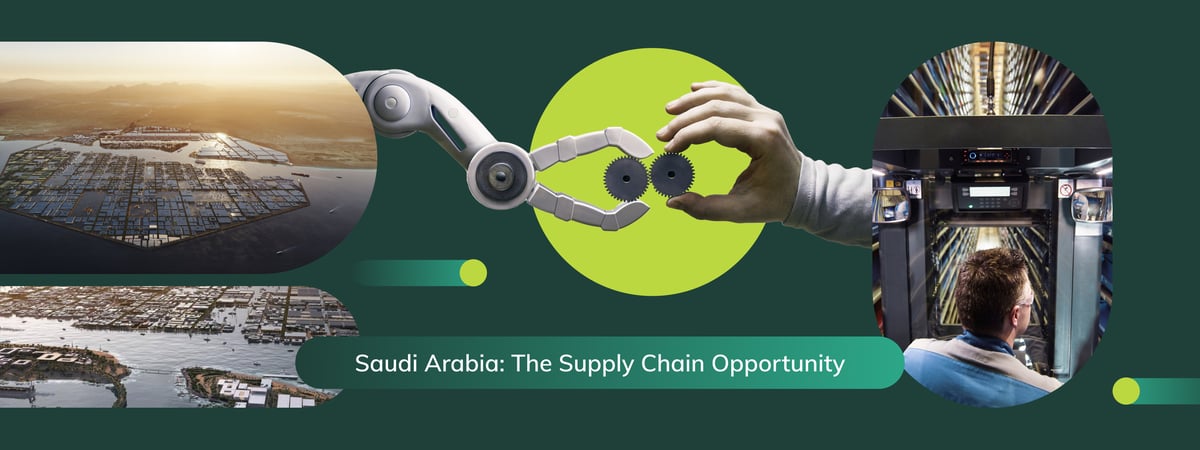
As a market mover with the second-highest GDP growth among G20 countries, Saudi Arabia is working to diversify its economy and attract external capital. The country’s Ministry of Investment (MISA) states that FDI inflows, excluding Saudi Aramco’s deal in 2021, increased by 46.5% in the second quarter of 2022 compared to the same quarter in the previous year.
The Saudi government has implemented reforms to facilitate and automate investment application procedures, which have reduced the number of requirements for investment licenses by 54%. These efforts, among others, are paying off, with the country seeing the entrepreneurship and innovation sector attract the most attention from investors, comprising nearly 90% of the deals closed in the third quarter of last year, according to MISA.
This FDI is key for NEOM, which has 14 integrated economic sectors and consists of eight regions, including Oxagon, NEOM’s home to advanced and clean industries. Redefining the traditional industrial model, Oxagon is where industry, people and technology will come together in harmony with nature. Through its advanced and clean manufacturing ecosystem, Oxagon will combine approaches of Industry 4.0 and the circular economy to enable factories of the future to create products of the future, and it will include a dedicated research and innovation hub to help innovators and entrepreneurs accelerate ideas from lab to market.
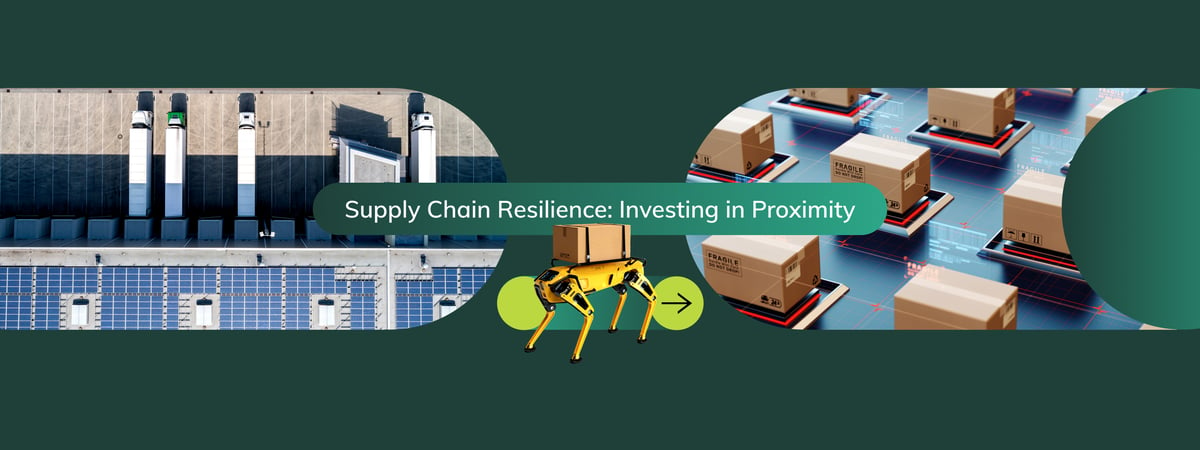
Why do some countries play a bigger role in global supply chains than others? Using a panel regression on data from more than 60 countries, a recent Bloomberg Economics report identified the main factors.
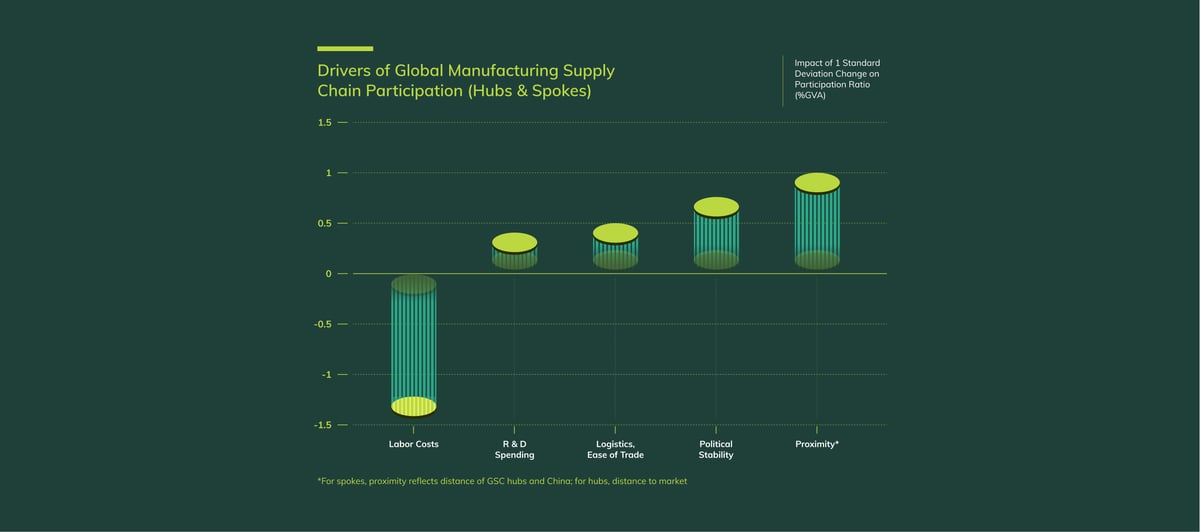
Determining a country’s supply chain integration is dependent upon many variables; however, one of the most important factors that influence supply chain resilience is geographical proximity. Countries that are more active in supply chains with spokes, or direction of deliveries, benefit the most from their proximity to manufacturing hubs, according to Bloomberg’s analysis.
Strategically located in the Red Sea, with 13% of world trade passing via the nearby Suez Canal, Oxagon will be home to a next-generation port and a fully automated and integrated supply chain and logistics network. This will enhance connectivity across NEOM, the region and beyond. And as part of the wider development, Oxagon will comprise the world’s largest floating structure with a seven-kilometer diameter to advance blue economy industries.
The big takeaway from recent supply chain snarls for Bloomberg Economics Chief Economist, Tom Orlik, is that shortages are at a historically elevated level, making managing the strain a matter of urgency. “You need a huge amount of management bandwidth at the corporate level, leadership bandwidth at the government level to think through these problems, and boots on the ground to start making things happen,” he says.
Ultimately, resilient supply chains require massive capital investment to diversify sources of supply and strengthen logistics. “At NEOM, we aren’t looking to just move the needle, but to create something that has never been done before all while ensuring economic viability,” says Al Moneef. “We know where we’re going, and we’re looking for partners to join us on this journey.”
